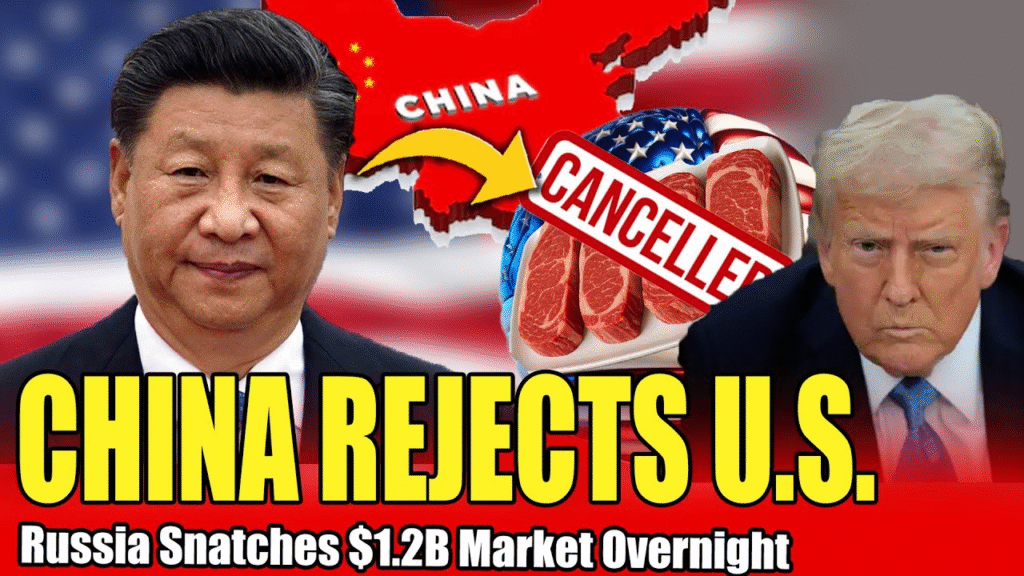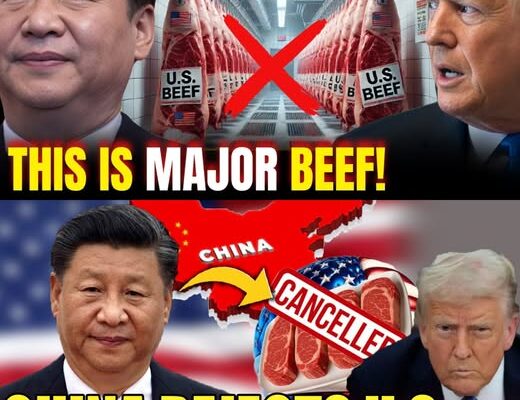In a surprising turn of events, China has officially rejected a staggering 150,000 tons of U.S. beef, sending shockwaves through the agricultural sector and opening the door for Russia to seize a lucrative market worth over $1.2 billion. This development not only impacts American farmers but also reshapes the global beef trade landscape.

The Decision and Its Implications
China’s decision to decline the shipment of U.S. beef comes amid ongoing tensions between the two nations, exacerbated by trade disputes and geopolitical frictions. This rejection is seen as a strategic move, reflecting China’s intent to bolster its domestic agriculture and find alternative suppliers.
The immediate fallout from this decision has been significant. With the sudden void left by U.S. beef, Russian exporters are poised to fill the gap. Russia, which has been looking to expand its agricultural exports, could gain a substantial foothold in the Chinese market. Experts predict that this shift could lead to a long-term realignment of beef supply chains between the two countries.
Russia’s Strategic Advantage
Russia’s entry into the Chinese beef market is not just opportunistic—it is also strategic. The Russian government has invested heavily in its agricultural sector, aiming to reduce dependency on imports and enhance food security. With China’s growing demand for beef, particularly in urban areas, Russia stands to benefit immensely from this new partnership.
Moreover, Russian beef is often priced competitively, allowing it to undercut U.S. prices. As a result, Chinese consumers may find themselves drawn to Russian beef, which could lead to a lasting preference that undermines U.S. producers.

Impact on U.S. Farmers
For American farmers, this development is particularly alarming. The rejection of such a large quantity of beef not only represents a loss of revenue but also signals potential long-term challenges in accessing the Chinese market. Many farmers have relied on exports to China as a critical source of income, and this sudden change could lead to financial strain for those dependent on beef production.
Industry analysts are already warning of possible price drops in the U.S. beef market as surplus stock accumulates. This situation could force farmers to rethink their strategies, potentially leading to broader implications for the agricultural economy.
Looking Ahead
As the dust settles from China’s rejection of U.S. beef, the agricultural landscape is likely to continue evolving. The move opens the door for increased competition, especially from Russia, and underscores the importance of adaptability in the face of changing market dynamics.
Both U.S. and Chinese agricultural policies will play crucial roles in shaping the future of this industry. For American farmers, the challenge will be not only to recover from this setback but also to innovate and find new markets in a rapidly shifting global economy.
In conclusion, China’s recent rejection of U.S. beef is not just a setback for American farmers; it marks a significant shift in international trade dynamics. With Russia ready to capitalize on this opportunity, the global beef market may never be the same again. The coming months will be critical as stakeholders navigate these changes and seek to secure their positions in an increasingly competitive landscape.

